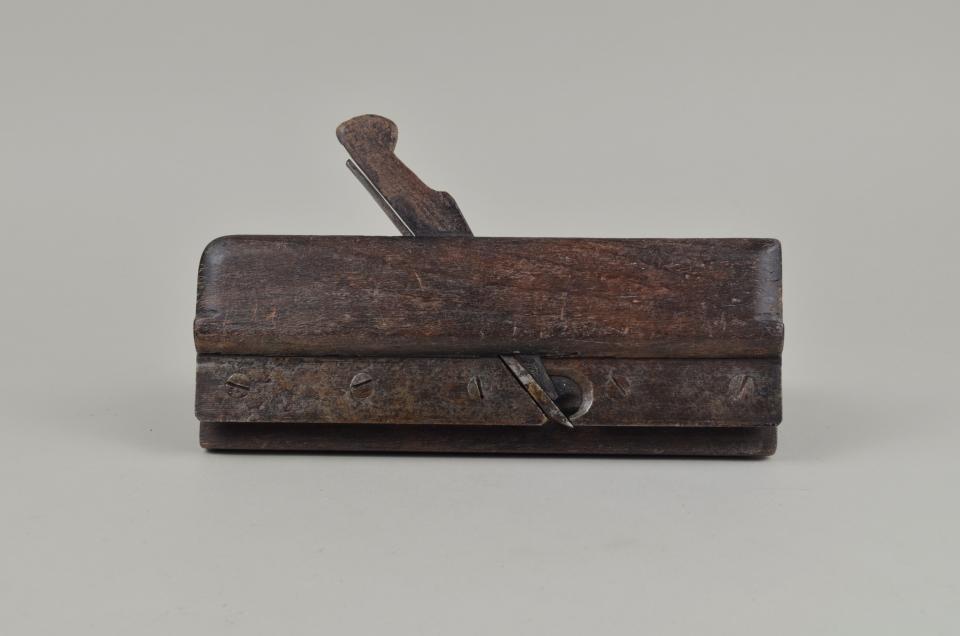
Length 23.5cm x Width 3.2cm x Height 14.0cm
a- Length 23.5cm x Width 3.2cm x Height 8.5cm
b- Length 14.4cm x Width 2.2cm x Height 0.7cm
c- Length 14.3cm x Width 0.6cm x Height 0.5cm
Grooving plane comprised of three parts, a rectangular wooden body with an angled cutout through the middle and a metal portion on the sole to form the grooving profile (a), a wooden wedge that tapers to a point at the bottom and is rounded at the top (b), and an iron that has a narrow angled blade at the bottom (c). The wedge and the iron fit together inside of the plane's body, and the wedge holds the iron in place as the plane runs across the wood below. Stamped on the toe is "A. WALLACE DUNDEE", "I BLOWER", and " [J.H. TAYLOR]". Stamped on the heel is "I BLOWER", "1", and "6/8".
Grooving planes are used to cut straight grooves, or rabbets, into a working piece. They are traditionally used for drawer bottoms or rear walls. They can be used in conjunction with a corresponding tonguing plane, which creates two parallel slits in a piece of wood. These create two pieces that fit together perfectly for joining work. Other names include dado planes, ploughing planes and matching planes when combined with a tonguing plane.
